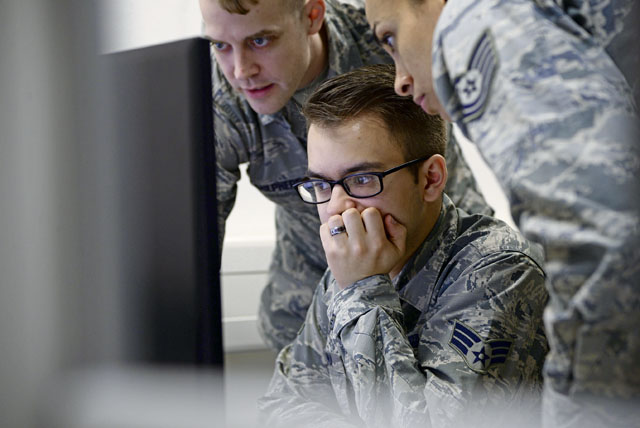
The 15th annual National Cybersecurity Awareness Month began Oct. 1. The month seeks to ensure every American has the resources needed to stay more safe and secure online, while increasing the resiliency of the nation during cyber threats.
According to the Department of Homeland Security, cybersecurity is a shared responsibility and every individual has a role to play. For military personnel and dependents living in the Kaiserslautern Military Community, travel opportunities pose additional challenges to staying safe online. Here are four best practices as we enter into a busier period of travel:
- Use strong passwords — Change default passwords on mobile devices to ones that would be difficult to guess. Use different passwords for different programs, sites, and devices. Do not choose options that allow devices to remember your passwords. Consider using a password vault app on mobile devices.
- Review privacy and security permissions — Review and understand the privacy and security permissions for websites or apps that share personal information. When using social media sites, customize the privacy settings. Adjust your privacy settings so that only approved people can view the information.
- Be careful what is posted and when — Wait to post pictures from trips and events so that people do not know where to find you. Posting a location could notify others that you are away from home, thus leaving it vulnerable. Consider adjusting settings on social media platforms that allow users to check in and broadcast their location.
- Exercise caution when using public wi-fi networks — Before connecting to public wireless hotspots — like in an airport, hotel, train or bus station, or café — confirm the name of the network and login procedures with appropriate staff to ensure that the network is legitimate. Cybercriminals can easily create a similarly named network hoping users will overlook which network is the legitimate one. Most hotspots are not secure and do not encrypt the information sent over the internet, leaving it vulnerable to online criminals. Avoid online shopping, banking, and sensitive work requiring passwords or credit card information.
Remember there is no delete button on the internet. Even if content is deleted, someone could have saved it or taken a screenshot. Before posting, ask: “Am I comfortable with sharing this information with the whole world?”
Practicing cybersecurity is an everyday task and requires relatively minimal effort to safeguard yourself and your families. Over the course of the month, the 86th Airlift Wing Cybersecurity Office will be presenting material in line with this year’s overarching themes of Making Your Home a Haven for Online Safety, Educating for a Career in Cybersecurity, Online Safety at Work and Safeguarding Critical Infrastructure.







